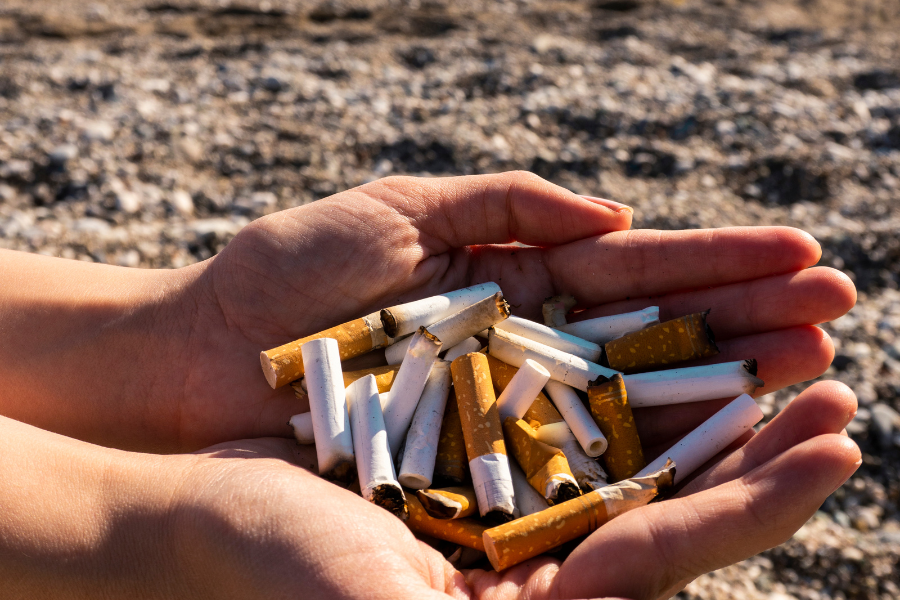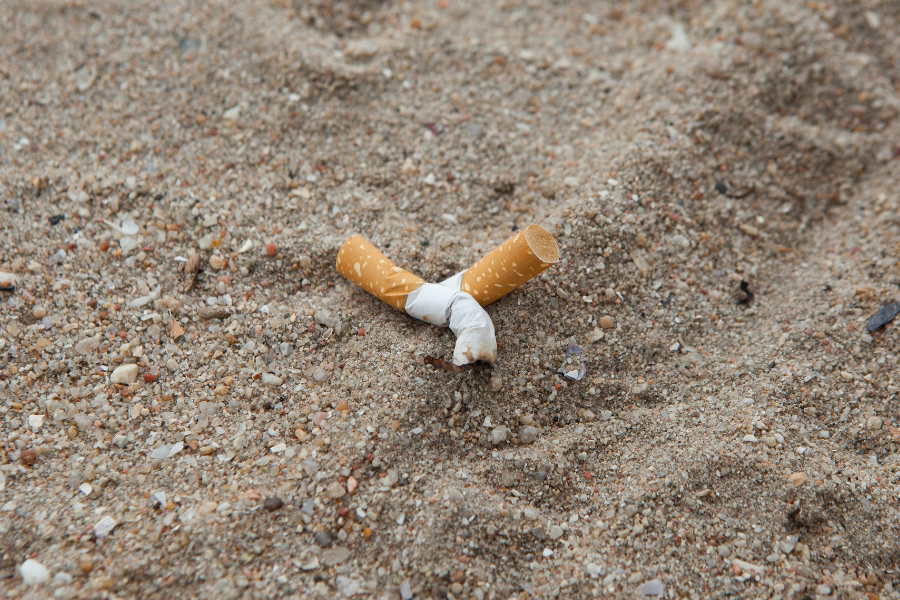Cigarette butts are one of the most commonly found forms of litter, polluting our streets, parks, beaches, and coastal areas around the world.
During coastal cleanups organized by The International SeaKeepers Society, volunteers collect data on litter using the Marine Debris Tracker app. This information helps identify the most frequent pollutants. Notably, cigarette butts make up nearly 7% of all items recorded. In the UK alone, an estimated 3.9 million cigarette butts are discarded daily, while globally the number climbs to a staggering 4.5 trillion annually.
Why are they a problem
Cigarette butts primarily consist of plastic and contain hundreds of toxic chemicals, though many consumers assume they are paper. These filters can take up to 10 years to degrade, and even then, they leach harmful substances like arsenic, lead, and nicotine into the surrounding environment—polluting water and soil long after the cigarette is gone.
A 2022 study highlighted their dangerous impact on marine life. Ingestion of these plastic fragments has led to increased mortality due to health issues like suffocation. But it’s not just marine life at risk: the same study found microplastics from cigarette butts in human tissue, underlining a broader environmental and public health concern.
Cigarette butts also create a significant financial burden. In 2021, UK local authorities spent an estimated £40 million cleaning them up.
What can be done
Thankfully, there are actions underway to address this issue.
This year, the Plastic-Free Butt Campaign launched to support an amendment to the UK Government’s Tobacco and Vapes Bill. The proposed amendment would require cigarette manufacturers to transition to plastic-free, biodegradable filters within 12 months.
The amendment was tabled by Gosport Member of Parliament (MP) Dame Caroline Dinenage, and other cross party MPs. The hope was to enact this by June, however this was debated in the House of Commons on the 26th of March, where it was unfortunately voted against by MPs.
Dame Caroline stated:“As someone who enjoys our local beaches and coastal walks, it’s shocking to imagine that single-use plastics from the 2.2 million cigarette butts dropped in the constituency are unnecessarily polluting our waterways. I’ve tabled this amendment - it’s an environmental no-brainer and overwhelmingly popular with the public.”
Outside of the UK there have been other similar bills intended to reduce the amount of cigarette butts that are littered, including instituting fines for those littering, providing more places to dispose of cigarettes, and bills that place pressure on tobacco companies to use less harmful filters. Some plastic free filters have already been created, such as filters which can degrade in compost, or that even can turn into plants once they’ve degraded in the environment.
How You Can Help
Concerned citizens have the power to combat this directly by getting involved in a clean up in your local area, and removing this potential risk to the local environment.
Interested in making an impact? Explore SeaKeepers' volunteer opportunities and join a cleanup near you. Together, we can tackle this overlooked but urgent environmental issue.
Sources
https://www.earthday.org/tiny-but-deadly-cigarette-butts-are-the-most-commonly-polluted-plastic/
https://www.debristracker.org/data/
https://www.theyworkforyou.com/debates/?id=2025-03-26a.1051.0
https://www.sciencedirect.com/science/article/abs/pii/S0013935122020448?via%3Dihub
https://www.sciencedirect.com/science/article/abs/pii/S0013935122020448?via%3Dihub




